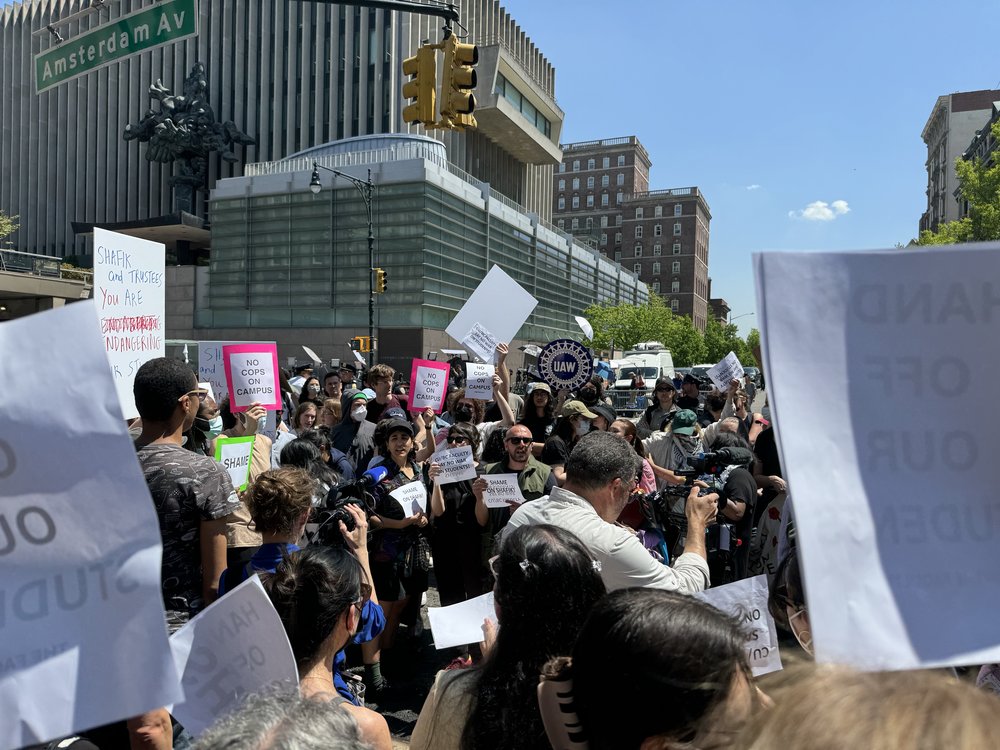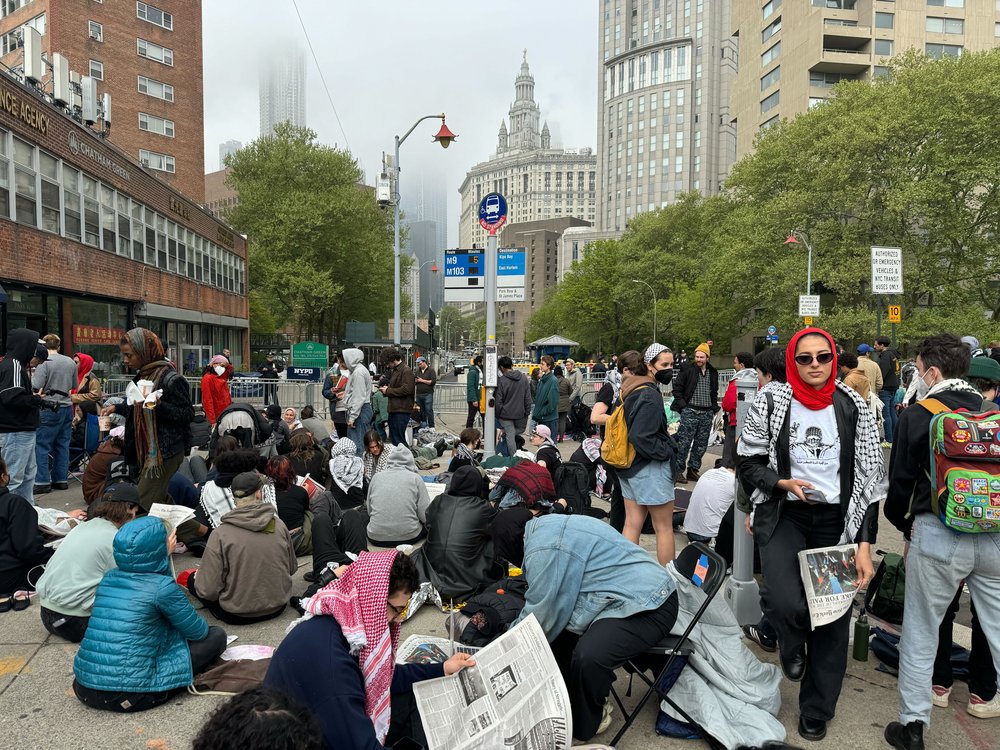'We can't work, we can't think': Columbia University students study for finals following protest, campus lockdown
May 1, 2024, 4:54 p.m.
Academic activities at both universities were moved fully online and access to the campuses was limited.

After Columbia University spent weeks at the center of a national pro-Palestinian protest movement, its students and faculty struggled to prepare for finals following mass arrests by the NYPD on campus.
Columbia moved all academic activities online on Wednesday and limited access to the campus to students in dormitories inside the gates and others with special permission. Just one school library outside the campus gates was open, according to university officials. Students with meal plans for the university cafeteria received an extra $80 to spend on food delivery or off-campus restaurants. Columbia wrote in an email to students that the shift to remote learning allowed students “to consider departing early,” ahead of the end of the semester. University leaders said the NYPD would maintain a presence on campus until after graduation, which is scheduled for May 15.
“The students are saying we can’t work, we can’t think, we can’t study under these conditions. We’ve got faculty whose papers they need to grade are locked in their offices right now,” said Joseph Howley, a classics professor at Columbia. “It completely upended everything that we do.”
Howley joined dozens of other faculty members on Wednesday to protest Columbia President Minouche Shafik's request for the NYPD to arrest students who had barricaded themselves inside the Hamilton Hall school building. The NYPD said police arrested 109 protesters at Columbia on Tuesday. Another 173 pro-Palestinian students at City College were arrested around the same time.
“Students and outside activists breaking Hamilton Hall doors, mistreating our public safety officers and maintenance staff, and damaging property are acts of destruction, not political speech,” Shafik wrote in a message to Columbia students and employees on Wednesday.
“It is going to take time to heal, but I know we can do that together. I hope that we can use the weeks ahead to restore calm, allow students to complete their academic work, and honor their achievements at commencement.”
Universities in New York City and across the country have grappled with how to respond to student protests since the Oct. 7 attack by Hamas militants and Israel’s ensuing bombardment and ground invasion of Gaza. Pro-Palestinian protesters at Columbia sparked a national movement by setting up an encampment on the main lawn, demanding the university divest from businesses with financial ties to Israel. Many Jewish students said they felt unsafe, citing antisemitic taunts from some demonstrators. As the demonstrations drew national attention, academic leaders like Shafik have struggled to avoid a familiar pattern where mass arrests of demonstrators lead to further protests.
At NYPD headquarters, around 100 City College students awaited the release of protesters. Aya Abdallah, a junior at CCNY, said the end of the academic year was not high on her list of concerns.

“Honestly, I think that for a lot of people, exams are, like, not a priority because so many of our students were brutalized and arrested by police last night,” Abdallah said. “I think that technically classes are being held today, but what we're focused on right now is trying to get people who have been arrested out of processing as quickly as possible and making sure they have legal support afterwards.”
By Wednesday morning, CCNY faculty and community members had staged an impromptu gathering at the corner of Oliver Street and Park Row in Chinatown – near the rear exit of NYPD headquarters – to wait for CCNY peers who had been arrested. Some spread blankets out onto the pavement and waited in the sun, sharing food and other supplies. A group of medical students and volunteers waited on the sidewalk by a table covered in medical supplies, ready to treat any arrestees needing care.
Abdallah wondered how City College’s graduation, currently scheduled for May 31, could go forward as planned. The college’s buildings were only open to essential personnel until “conditions permit a return to normal business operations,” CCNY President Vincent Boudreau wrote.
Columbia professors said they were unable to meet students in-person on campus ahead of final exams.
“Students and faculty can’t continue to be in an educational institution under these conditions,” said Barnard sociology professor Debbie Becher. “It won’t work. The students are living in fear all of the time and that’s not a way to educate, it’s not a way to treat anyone.
Columbia student Zachary Singerman, who opposed the pro-Palestinian protesters’ cause, said he was frustrated with the campus lockdown.
“They haven't indicated that the campus will reopen. It's just kind of like in limbo right now,” Singerman said. “I have to study in my room … I can't go onto campus to study, which is where people study for finals."
NYPD says police arrested nearly 300 people at Columbia and City College protests